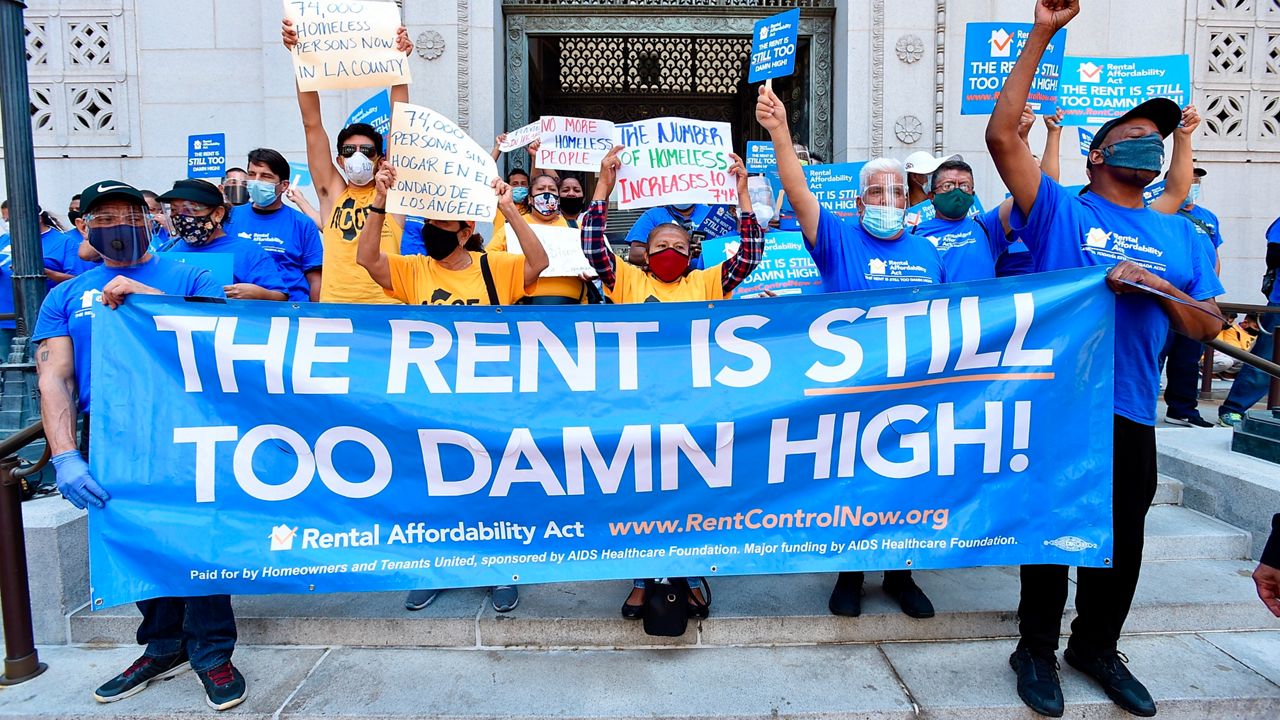LOS ANGELES — With Los Angeles County's eviction moratorium set to end, some landlords have been taking self-defense classes in case things get violent during an eviction process.
The Apartment Association of Greater Los Angeles has hosted AVERT, Active Violence and Emergency Response Training, classes for its members the past year in response to news reports of violence between renters and landlords.
“We initially decided to hold the class in response to seemingly constant news reports of mass shootings and innocent personnel being injured or killed due to violence in the workplace,” said Dan Yukelson, executive director of the Apartment Association of Greater Los Angeles, to Spectrum News.
Yukelson noted that the classes had been well attended, with many landlords and their employees sharing stories of receiving threats of violence or dealing with erratic behavior from tenants in apartment communities and leasing offices.
One student worker, Yukelson said, had been robbed at gunpoint near work.
“For many of our members, we are dealing with retirees who often feel threatened by younger, less respectful renters,” said Yukelson. “I have become aware of housing providers who have sought restraining orders against renters, some who have been physically attacked or verbally abused, or merely threatened with or witnessed violence.”
The classes come as LA County’s eviction moratorium is set to expire at the end of March.
The county’s COVID-19 Tenant Protections Resolution initially went into effect on March 4, 2020, during the early part of the pandemic, to prevent low-income renters from becoming homeless.
The resolution provided certain residential, mobile home and commercial tenants a level of protection from rent increases, anti-harassment and evictions. During this time, struggling tenants were allowed to remain in their units despite not paying rent, and in many cases, landlords were hamstrung.
Although state and government funding paid for some struggling tenants’ back rent, many were “forced to go months, years in some cases, without rent payments. The moratorium limited their ability to evict for some lease violations, such as moving in additional tenants or pets,” according to the LA Times.
Starting April 1, landlords could serve tenants a 30-day notice before filing an eviction. Tenants who owe back rent will have up to 12 months to repay any past due rent.
Yukelson said tensions among rental housing providers and tenants had run high in the past three years due to government mandates and could come to a head on April 1.
He added that housing providers and renters usually work things out regarding rent payments.
However, the government mandates imposed significant regulatory restrictions on housing providers and emboldened renters in a manner that created far too much opportunity to take advantage of the situation, he said.
Yukelson explained how many landlords were reluctant to communicate with renters for fear of penalties imposed under anti-harassment ordinances and misunderstandings.
“As a result, in many cases, huge rental debts built up that will never be paid and added to the tension among owner and renter,” he said.
Noah Kaufman, acquisitions associate at Universe Holdings, noted that landlords struggled with LA’s pandemic-related restrictions, where several of his company’s properties are rent control.
“Since early 2020. we have been unable to incrementally raise rents on renewals as well as evict tenants who stopped paying rents for an extended period of time,” said Kaufman. “With the current eviction moratorium being extended through the end of March 2023, it has pushed the can down the road.”
Kaufman said that without even a moderate rental increase or evicting delinquent tenants, this disincentivizes current owners and future LA city and county investors from investing capital in existing projects or future opportunities.
“The return on investment isn’t there or will not be there,” said Kaufman. “This is not to say that every single unit in LA County needs to be at market rent, but there needs to be a happy medium where there is still workforce and affordable housing while at the same time allowing landlords to push rents.”
Meanwhile, some tenants have also struggled. Some were laid off due to the pandemic or pushed out of the housing market due to rising interest rates, high costs and a housing shortage.
With tensions high and the eviction moratorium set to end, Yukelson said there’s no telling how a renter will react to receiving a notice of eviction.
Since the organization’s first AVERT class, he said more stories have come out in the news about violence against housing providers.
The AVERT classes, he added, allowed landlords to take precautions, learn some self-defense techniques and how to stop life-threatening bleeding, and prevent mass shootings.
Yukelson also said the organization plans to hold another class this summer.



